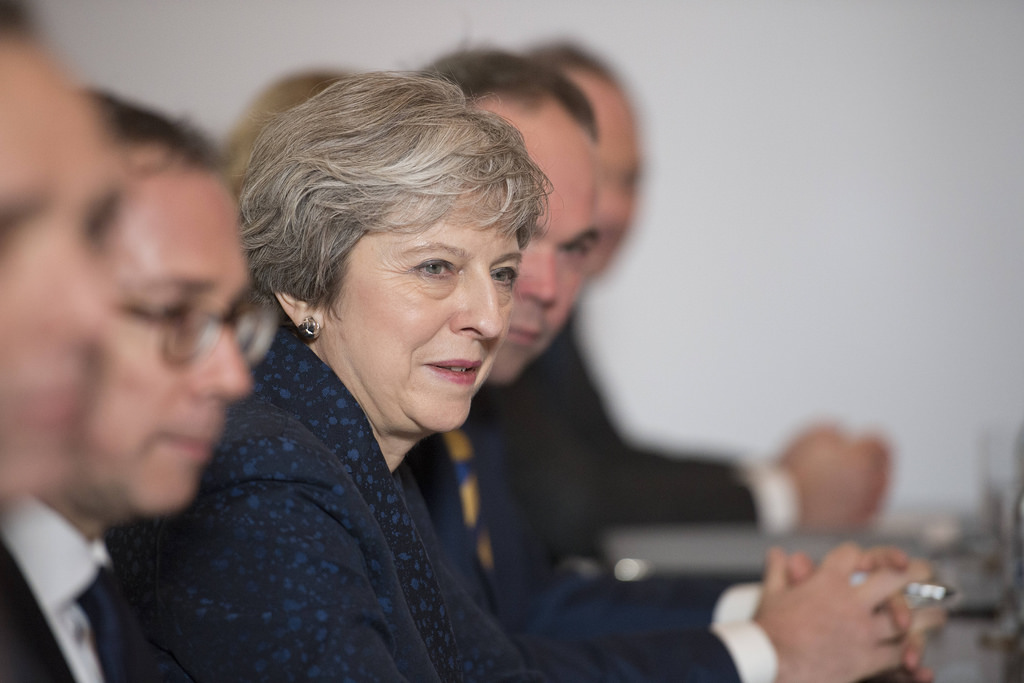Tories in crisis blog: May’s painful endgame is under way
Date 13.12.2018
13.12.2018
Kate Ironside is a Senior Lecturer in Journalism at the University of Northampton and a former political journalist. She spent 13 years at Westminster, working for Central Press, the Daily Express and BBC Westminster and, for 17 years, wrote a weekly award-winning column on the European Union for the Western Morning News. She sits on the executive board of the Broadcast Journalism Training Council and has written Reporting Power, the official BJTC textbook on public affairs.
What we are witnessing are the prolonged death throes of Theresa May’s premiership. Last night’s attempted vote of no confidence hasn’t actually changed the fundamentals. It has merely made an existing very bad situation marginally worse.
Mrs May remains in post. For now. But she is wounded (again). And as one of her leading parliamentary critics, Jacob Rees-Mogg pertinently pointed out, she remains a Prime Minister who cannot get her business through the House of Commons. She is in office, but not in power. She still doesn’t have a majority for her Brexit deal and until she does, her administration remains paralysed.
That’s a tragedy because there is so many important domestic areas of policy that urgently need Government attention. Police forces are struggling. The NHS is braced for another bruising winter. There’s a shortage of nurses, midwives and GPs. The housing market – in the words of the Government – is broken. More and truly radical action is needed if our young people are to afford a home of their own before they hit middle-age.
And yet none of these issues will be properly addressed until Brexit is fixed.
That is why Mrs May is back in Brussels today trying to get some further softening on the terms of the Irish backstop. Last night’s vote didn’t change that fundamental. It merely added a layer of fresh urgency to it. For her Brexit deal to survive a Commons vote, she needs enough backpedalling on the backstop to win over at least some of her Conservative critics and ideally calm the fears of the 10 DUP MPs whose votes she depends upon to prop up her government.
If the fresh words she wrings out of the EU don’t satisfy every single one of her Conservative and DUP critics – and it is not looking hopeful – then she is going to be dependent on Opposition MPs to vote her deal through in the New Year. There’s a precedent for that. In 1972 the Conservative Prime Minister Edward Heath only succeeded in taking the UK into the then European Economic Community with the help of 69 rebel Labour MPs’ votes. It has a certain neat symmetry but for the Conservatives, it is appalling politics.
Voters dislike divided parties and what last night’s attempted vote of no confidence did was turn yet another powerful spotlight on the Conservatives’ open, raw and bleeding divisions. 200 MPs supported the Prime Minister but 117 Conservative MPs did not – including several Northamptonshire backbenchers. It was devastating.
In a bid to ensure her own survival, Mrs May promised her MPs that she would not fight the next election as Conservative leader. That’s not actually a concession. She’s been living on borrowed time ever since she threw away the Conservative Government’s majority in her ill-fated snap election last year. Her parliamentary party has never had any intention of letting her lead them into the election of 2022.The only question is precisely when she will step down. Last night she was remaining tight-lipped on the date but both she and the Conservative parliamentary party knows that she will need to give her replacement time to bed in before the next election.
An early general election remains on the cards. And whenever the next election comes, by hook or by crook, Mrs May will be gone. The endgame of her premiership may be short. It may be protracted. But either way it is painful and it is under way.